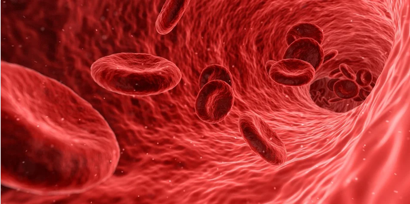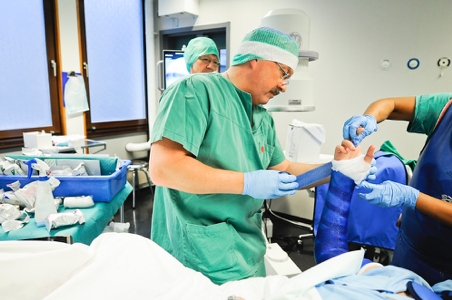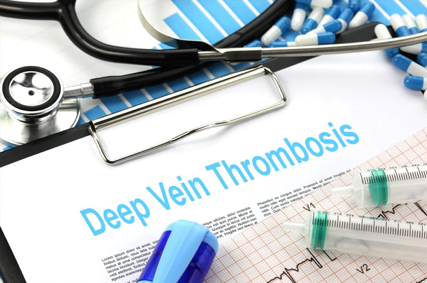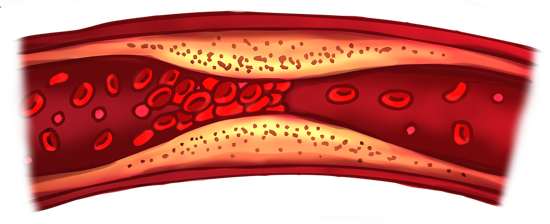Do vascular surgeons work on blood clots? Many diseases and disorders can have a detrimental effect on your body’s circulation and blood vessels. For one, blood clots deep inside the vascular system are a serious concern that’s most often ignored until it reaches a chronic stage. Whether you’re an elderly patient or a young adult, you must take the required medications and the help of a professional vascular surgeon to treat all the abnormalities of your vascular system. Blood clots that form deep inside the extremities of the limbs and other parts are commonly referred to as “Deep Vein Thrombosis” (or DVT).

(Source)
Here’s what you must know about blood clots and how a vascular surgeon can help. Understanding vital information can prepare you for unexpected circumstances and health issues. Hence, you may deal with it appropriately and get necessary medical attention on time.
An Overview of Blood Clots and Development in Veins
To put it simply, blood clots refer to gel-like substances. They primarily comprise blood plasma and red blood cells. However, the only difference is that they are partially solid and obstruct the healthy blood flow in the affected area. It’s your body’s natural mechanism for defending it against foreign bacteria invasion and infection risks upon experiencing a cut or hole. Whether it’s a small incision or a huge injury, blood clots form with the help of a natural substance called fibrinogen.
Blood clots also form when excessive bleeding takes place. You may have seen scabs and scar tissue form after experiencing any injury that causes bleeding. Blood clots cover holes and prevent bleeding from reaching a serious level.
While it’s a natural response to injuries such as holes and cuts to prevent excessive bleeding, unnecessary blood clots without any possible external injury are referred to as thrombus. For example, when blood clots form in the blood vessels coming out of the lungs and towards it, it’s called pulmonary embolism. A typical blood clot is called a thrombus, and when it starts moving to other parts of the body, it’s referred to as an embolism. The most common occurrences of blood clots are inside veins and arteries. You will require the help of a professional vascular surgeon when a thrombus causes venous and arterial clots.
Different Types of Blood Clots
There’s not just one type of blood clot that forms inside the body. Instead, there’re multiple types of blood clots, including thrombus and embolism. Sometimes, both can occur in conjunction and cause serious health issues. Some of the main types of blood clots include:
- Coronary thrombosis
- Venous thromboembolism
- Pulmonary embolism
All of these are related to the blockage of healthy blood flow inside the body. These cause further difficulties and painful medical symptoms for which you may require immediate healthcare and treatments.
Vascular Surgeons and Blood Clot Treatments
When DVTs or other types of blood clots form, the goal of professional vascular surgeons is to prevent those blood clots from getting larger. As they get larger, blood flow around the body can experience serious discrepancies and critical issues. When blood clots grow bigger in the future, they can cause permanent damage to the circulatory system and vascular muscles. That’s one of the major reasons professional vascular surgeons emphasize the need to receive treatment on time.

(Source)
Depending on the severity of your blood clots and where they’re located, your vascular surgeon might suggest different treatment options ranging from physical therapy and medications to invasive surgeries. Here’re some of those treatment options:
- Compression stockings are tight-fitting stocks that can help you with leg swelling to prevent blood clots from forming and progressing.
- Blood thinning medication usually helps in reducing the thickness of blood to help in the prevention and formation of blood clots in the first place. Some medication can also help to dissolve blood clots by thinning the platelets and affecting the attachment of fibrinogen.
- Stents allow vascular surgeons to keep the blood vessels of patients open for sufficient blood flow.
- Surgeries could be invasive or minimally invasive to prevent the progression of vascular disorders and diseases. For instance, dissolving blood clots and removing dead tissue can be assisted through vascular surgeries.
Prevention Tips
Several tips and techniques can help reduce the chances of experiencing blood clots. Whether you’re at an early age or elderly, here’re some tips that can help you:
- Reduce and quit smoking
- Engage in regular physical therapies, activities, and gymnastics
- Control medical conditions like diabetes and high BP issues
- Prevent obesity and control your healthy weight
- Ensure a healthy diet plan and keep yourself hydrated at all times
- Also, ensure timely cancer screening
Do vascular surgeons work on blood clots? Conclusion
Do you find it difficult to cope with vascular issues that are leading to internal blood clots? Get the right medical care and treatment options to form us at Vascular Surgery & Vein Center. We provide some of the best healthcare services in New York for all those suffering from blood clots or associated issues. Dr. Norman Chideckel will diagnose your condition and help you receive the best treatment.
Vascular Surgery & Vein Center
108 East 96th Street
Front 1
New York, NY 10128
212-993-6133






